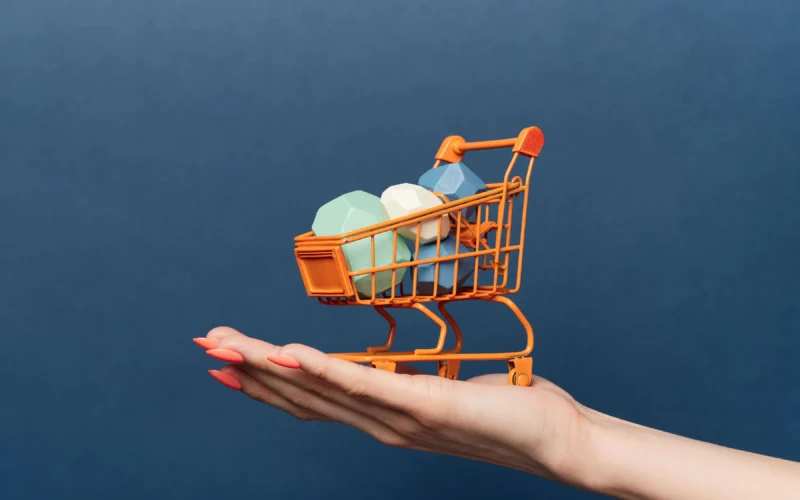Wholesaler vs. Manufacturer: Benefits of Wholesalers in the Distribution Process
There are many good things about wholesalers that help the marketing process run smoothly. Let’s look at these perks in more depth.
Economies of scale
One of the best things about wholesalers is that they can use economies of scale to their advantage. Wholesalers can get better prices and discounts by buying many products straight from the manufacturer. This lets them lower the cost of goods total and give savings to retailers. Because of this, retailers can buy products at lower prices than if they purchased them straight from the manufacturers. Manufacturers also benefit from economies of scale because large orders from wholesalers help keep a steady demand for their goods.
Knowledge of and Expertise in the Market
Wholesalers know everything there is to know about the market and customer trends in their industries. They act as middlemen between manufacturers and retailers, gathering helpful information about the market and retailer feedback. With this information, they can determine what the market wants, new trends and consumers want. This lets them make smart decisions about their goods and how to make them. Wholesalers can also give retailers helpful advice about product selection, price, and marketing strategies, which makes it easier for retailers to meet customers’ needs.
Risk Mitigation
Wholesalers are important for producers and retailers because they help reduce risks. Wholesalers work as a buffer for manufacturers because they hold inventory and take on the risk of products that don’t sell. This makes it easier for producers to deal with market changes and changes in demand. In the same way, retailers benefit from reducing risk because wholesalers often have open return policies that allow retailers to send back unsold or slow-moving inventory. This reduces the financial risks that come with having too much stock.
Better Logistics and Efficiency
Wholesalers make the process of getting goods to retailers easier by putting together products from different manufacturers and selling them to different retailers. This consolidation makes transportation more efficient and reduces shipping costs, speeding up the delivery process. Also, wholesalers often offer storage and inventory management services, which make the supply chain operations even better. Retailers can get a wide range of products from different manufacturers through a single wholesale supplier. This makes the process of buying products easier and improves operating efficiency.
Methods of Financing and Credit
Retailers can often get credit from wholesalers so they can buy things now and pay for them later. This plan helps retailers improve their cash flow and working capital to put their money into other parts of their business. Small and medium-sized stores benefit the most from financing help from wholesalers because it makes them less reliant on expensive bank loans and other forms of financing. This wholesaler vs. manufacturer benefits gives you a one-sided picture of the situation. So, let’s see the challenges as well.
Wholesaler vs. Manufacturer: Challenges of Wholesalers in the Distribution Process
Even though wholesalers are a big part of the marketing process, they face many problems that affect how they do business and how competitive they are. It is important to understand wholesaler vs. manufacturer obstacles to come up with good plans for growth and success that will last.
Dynamic Market
Changes in customer behavior, preferences, and market trends cause the business world to change all the time. Wholesalers must adjust to these changes if they want to stay in business. For example, as more people care about their health, organic and environmentally friendly goods demand has grown. Wholesalers must react to these changing consumer tastes by finding and distributing products that meet these needs.
Competition Getting Tougher
Many wholesalers compete for a market share, making wholesale selling a competitive business. Since there aren’t many barriers to entry, new players can easily join the market and make it even more competitive. Established wholesalers must keep coming up with new ideas, improving their services, and standing out to keep their current customers and draw new ones.
Disruptions in Technology
Technology changes have made the selling process very different, and wholesalers must accept and adjust to these changes. Automation, artificial intelligence, and data analytics are changing supply chain management. This makes handling inventory, predicting demand, and filling orders easier. If a wholesaler doesn’t use technology in their business, they could fall behind their tech-savvy rivals.
E-commerce and Wholesalers’ Changing Roles
E-commerce’s rapid growth has changed how people shop and put pressure on the old wholesale distribution model. Manufacturers can now reach customers directly through online sites instead of going through wholesalers. Some sellers also choose dropshipping, which eliminates the need for wholesale middlemen. Wholesalers must look for possibilities in e-commerce, use new distribution models, and work with e-commerce platforms and retailers to stay competitive.
Practises for Sustainability
The demand for sustainable products and green practices is being driven by consumers’ growing awareness of environmental problems. Wholesalers are forced to find eco-friendly products and make their supply lines more environmentally friendly. Companies that align their operations with sustainable ideals have an edge over their competitors and attract retailers and customers who care about the environment.
Globalization and Trade Around the World
Globalization is changing the wholesale distribution landscape, with wholesalers looking for chances outside of their home markets. International trade and cross-border partnerships are becoming more common, giving wholesalers access to new markets and letting them give retailers worldwide a wider range of products. To be successful in the global market, wholesalers must deal with foreign rules, complicated supply chains, and different cultures.
Final Verdict
Wholesalers are very important to the distribution process. They offer many benefits, such as economies of scale, market knowledge, reducing risk, and making the process more efficient. But they also face problems like changing market conditions, more competition, problems with technology, and the changing role of e-commerce. The above-mentioned wholesaler vs. manufacturer analysis has cleared all the aspects of the distribution process.
Wholesalers can take advantage of their strengths and solve problems if they understand these forces and use good strategies. This helps them grow and be successful in the long run. Looking ahead, wholesalers need to embrace technology, put sustainability first, and look into global opportunities if they want to stay competitive in a distribution environment that is always changing.
What is gan bei meaning?
Gan bei is a Chinese word often used to make a toast when people get together or share a drink. The word gan bei meaning “dry cup” or “bottoms up.” When someone says gan bei, it’s common for everyone to raise their glasses and drink together as a sign of friendship, respect, or joy. It is common for Chinese people to wish each other well and show friendship at holidays or other important events.

